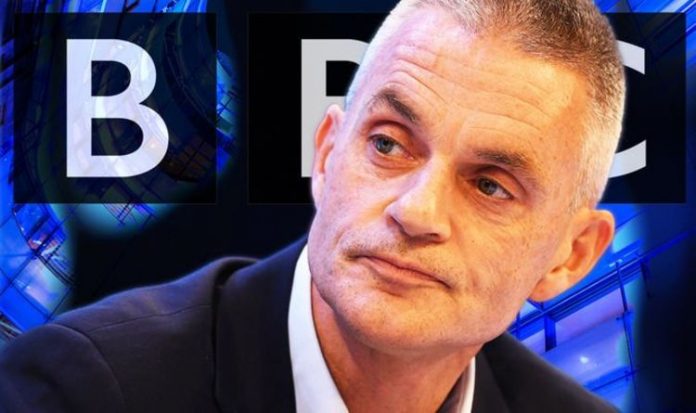Mr Davie started the job as the BBC’s new Director General earlier this month. He has already paved the way for several changes to the corporation in a bid to secure more impartiality and transparency. Under his authority, BBC presenters who use their notable status to secure lucrative work will now be forced to declare outside interests.
A database of all BBC employees’ outside commitments is to be set up, and made available to licence fee payers to scrutinise how much presenters made from corporate sidelines and speaking engagements.
Mr Davie has also made clear his wishes to reduce the BBC’s overall headcount.
The corporation employs more than 19,000 people around the world.
The changes come as he warned that the broadcaster’s future faces a “significant risk” and has “no alienable right to exist”.
During a speech earlier this month in Cardiff, he said: “If current trends continue, we will not feel indispensable enough to all our audience. We must evolve to protect what we cherish.”
Despite mounting pressure, he has dismissed any notion of turning the BBC into a Netflix-style subscription service.
He argued that such a change in operation “would make us just another media company” that serves only “the few”.
He said: “We could make a decent business out of it, and I suspect it could do quite well in certain postcodes, but it would make us just another media company serving a specific group.
JUST IN: BBC Breakfast’s Matt Taylor apologises to viewer after technical error
Earlier this year, the Government upped its rhetoric against the corporation and vowed to scrap the fee and make viewers pay a subscription, according to day Times.
The BBC is governed by a Royal Charter which protects the licence fee until at least 2027.
Although ministers suggested the compulsory levy could be scrapped by this date.
It also said it was consulting on plans to decriminalise non-payment of the licence fee from 2022.
The Government’s criticisms revolved around the number of radio stations, TV stations and online presence.
A senior source told The Times: “They should have a few TV stations, a couple of radio stations and massively curtailed online presence and put more money and effort into the World Service, which is part of its core job.”
Mr Davie has, however, ruled out shutting TV channels or radio networks in the short term.
Although, he has said that he would “not hesitate to close channels if they do not offer value to our audiences”.
He has also pledged that the BBC will “renew our commitment to impartiality”.
He said: “It is not simply about left or right. This is more about whether people feel we see the world from their point of view.
“Our research shows that too many perceive us to be shaped by a particular perspective.
“If you want to be an opinionated columnist or a partisan campaigner on social media then that is a valid choice, but you should not be working at the BBC.”







